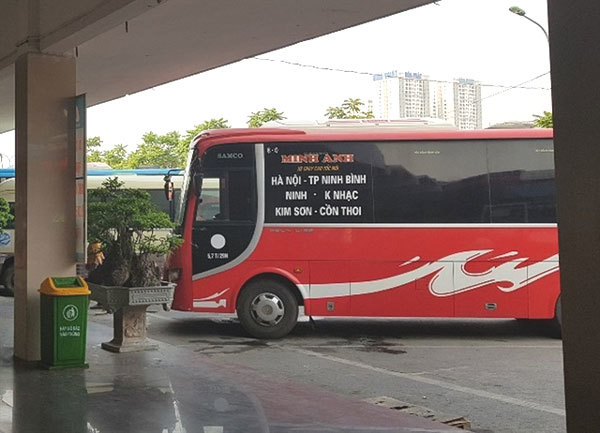Severe competitiveness between legal and illegal inter-provincial buses
Bus fraud booming in Vietnam
 |
| A bus at Hanoi's Giap Bat Station. Dozens of transport firms at the station reduced the number of coaches on routes from Hanoi to Ninh Binh, Thai Binh and Nam Dinh provinces because their passenger numbers have dropped. Photo anninhthudo.vn |
They claim the illegal operation of ‘limousine services’ – a type of contract service car – is taking advantage of loopholes to pick up passengers along fixed routes and causing unhealthy competition.
The contract service cars, widely known as ‘limousines’ in Vietnam, have become popular among passengers in recent years for their convenience and comfort. ‘Limousines’ are seven-seat buses which have been converted from 16-seat vehicles to create a more comfortable travel experience.
As regulated, these ‘limousines’ are allowed to operate when they have contracts with passengers, including the names of passengers and details of routes, pick-up and drop-off stops before the trip.
However, many are operating on fixed inter-provincial routes the same as buses. They gather near bus stations to illegally pick up passengers and sign contracts with them later.
Routes cut down
Last week, the city’s Department of Transport asked Ha Noi Bus Station JSC to stop operating more than 100 passenger buses. These buses had cancelled routes without informing the bus stations.
Ha Noi Bus Station JSC said in the peak months of December 2018 and January 2019, more than 300 passenger buses run by 66 transport enterprises cancelled more than 30 per cent of the routes they were registered to operate.
Nguyen Tat Thanh, director of Giap Bat Bus Station, told An Ninh Thủ Đô (Capital Security) newspaper that about 120 buses belonging to 22 transport enterprises had stopped operation or only maintained between 20 and 40 per cent of total registered routes in the first three months of this year.
The routes between Hanoi to Ninh Binh, Thai Binh and Nam Dinh provinces were among the routes with the fewest passengers.
Vu Van Tu, a representative of Ninh Binh Automobile JSC, said the company had registered 70 buses each day departing from Giap Bat Bus Station to Ninh Binh Province.
However, the number of passengers only accounted for 30 per cent of capacity, so the company had been forced to cut the routes.
Tu said none of the enterprises wanted to cut back, but they could not maintain operations while suffering losses.
Trinh Hoai Lam, deputy director of Nuoc Ngam Bus Station, said only transport enterprises running the Hanoi to Thai Binh and Nam Dinh routes had cancelled journeys.
More than 200 buses were cancelled in the first three months, he added.
Tran Van Hue, a representative of Sao Vàng (Gold Star) Company, said the number of passengers had fallen drastically in the past two months.
On some routes, there were only two passengers.
On April 19, the bus departed with six passengers. The next day was even worse as there were no passengers, Hue said.
According to them, the illegal operation of limousine services was the main reason for the fall in passengers.
Hue said limousines operated illegally on every street corner around bus stations to pick up passengers.
“How can we compete with a service like this?” he said.
Director of Giap Bat Bus Station Thanh said the station had told transport enterprises to report any cancelled routes.
Thanh agreed that cutting routes with few passengers was necessary.
Leaders of key bus stations said illegal limousine services needed to be stopped to create healthy competition and reduce traffic chaos in the city.
VNS
 Hundreds of inter-provincial passenger buses have cancelled their routes from key bus stations over the past three months due to competition from a new form of service.
Hundreds of inter-provincial passenger buses have cancelled their routes from key bus stations over the past three months due to competition from a new form of service.